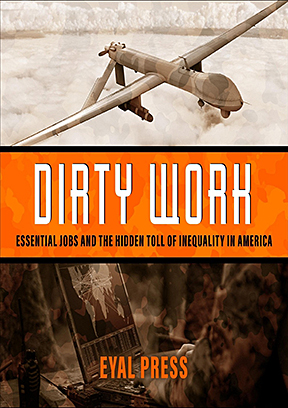Home Grown Ingredients
Many people believe that it’s bad manners to discuss politics over dinner. Merriam Webster defines politics as “the art or science of government.” The world’s home grown political (and religious beliefs) sprouted in geographically isolated yet often concurrent efforts to solve local problems. Our shared issues are happening now; our points of view are developing now; and when our ancestors developed and recorded their belief systems for their contemporaries to read, our ancestors were dealing with their own
“now.”
Many people believe “polite” people keep details of their physical ailments to themselves. In parochial grammar school, we were taught to sit perfectly still and, when uncomfortable, to offer up pre-recess thirst and other discomfort, as penance for our sins. Shaming teachings can cause neurons to fire and wire together in a way that detracts from proper bodily care.
In her book, “The Invisible Kingdom – Reimagining Chronic Illness,” Meghan O’Rourke suggests that our health care systems too often blame individuals for conditions rooted in, what Ms. O’Rourke refers to as “the polis.” According to Merriam-Webster online, the polis is “a Greek city-state; or broadly: a state or society especially when characterized by a sense of community.”
Political parties, religious congregations, clubs, and families share a sense of community, communities might protect themselves by talking about their own internal function and dysfunction, but rather projecting: attributing their own negative tendencies to others. Few people feel brave or unguarded enough to challenge groupthink. Still, nature has designed us individuals to be individual. Transposons, jumping genes, drive evolution in bacteria and plants, and biologically trigger human brains to operate uniquely from and within their own points of presence in space and time
Written by former National Institute of Mental Health Director Thomas Insel, MD, “Healing Our Path from Mental Illness to Mental Health” discusses the need for individualized interventions and treatments for people suffering mentally and emotionally. Until recently, Dr. Insel headed the National Institute of Health’s Human Connectome Project, which sought to map neural connections to establish concrete brain-based approaches to mental illness. Dr. Insel’s work changed his mind; he decided that listening to what individual people say about what they are feeling, or thinking is a better way to help those people suffering from mental distress.
Mental distress can result from outside factors. It often does.
 In “Dirty Work – Essential Jobs and the Hidden Toll of Inequality in America,” journalist Eyal Press, details the trauma and disrespect suffered by the individuals who perform the dangerous and unpleasant jobs that our society wants done, takes for granted, then chooses to ignore. Eyal Press interviewed and followed the stories of people such as mental health counselors working in prisons, meat processing workers, and military drone operators. “Dirty Work” discusses animal suffering, human suffering, and PTSD. PTSD is a mental diagnosis generally rooted in outside injuries.
In “Dirty Work – Essential Jobs and the Hidden Toll of Inequality in America,” journalist Eyal Press, details the trauma and disrespect suffered by the individuals who perform the dangerous and unpleasant jobs that our society wants done, takes for granted, then chooses to ignore. Eyal Press interviewed and followed the stories of people such as mental health counselors working in prisons, meat processing workers, and military drone operators. “Dirty Work” discusses animal suffering, human suffering, and PTSD. PTSD is a mental diagnosis generally rooted in outside injuries.
Some people believed mental illness was hereditary. Environmental factors are known to trigger gene function. Today, geneticists focus on heritable diseases such as sickle cell, Huntington’s, and Alzheimer’s. A good biography and primer on how scientists can alter DNA (and create vaccines such as the COVID vaccine) is Walter Isaacson’s “The Code Breaker – Jennifer Doudna, Gene Editing and the Future of the Human Race.” Jennifer Doudna’s research and collaboration with others led to the development of CRSPR gene editing technology. The science in the book challenged me, the reader; the science is good to know.
Human genes still transmit themselves naturally; then, some polis gets involved. In her 1994 memoir, “Uncommon Knowledge,” Judy Lewis, 1935 – 2011, describes growing up with unanswered questions about her genetic origins. Adopted at 18 months from a Catholic orphanage by staunchly Catholic movie star Loretta Young, Judy was indeed Loretta’s natural child; Clark Gable was Judy’s father. Loretta answered Judy’s questions about her early life by telling Judy to feel grateful she was the chosen adopted daughter of a famous actress. Raised strictly Catholic, when Judy had painful surgery to make her ears less prominent and less like those of her father, Judy offered up her suffering for her sins. Eventually Judy studied psychology and become a therapist. She writes about early trauma, and, like many therapists addressing trauma, believes our psyches register feelings and imagery even when we’re not consciously capable of labeling them with the proper words. Early confusion, trauma, and lack of consistent respectful communication sets people up to be gaslighted and manipulated.
“Uncommon Knowledge” is available in the Onondaga County Library System. Libraries and bookstores provide lots of ingredients for our brains to digest, and much to talk about in mixed groups. Our chosen groups are our poleis. We need to keep talking.











